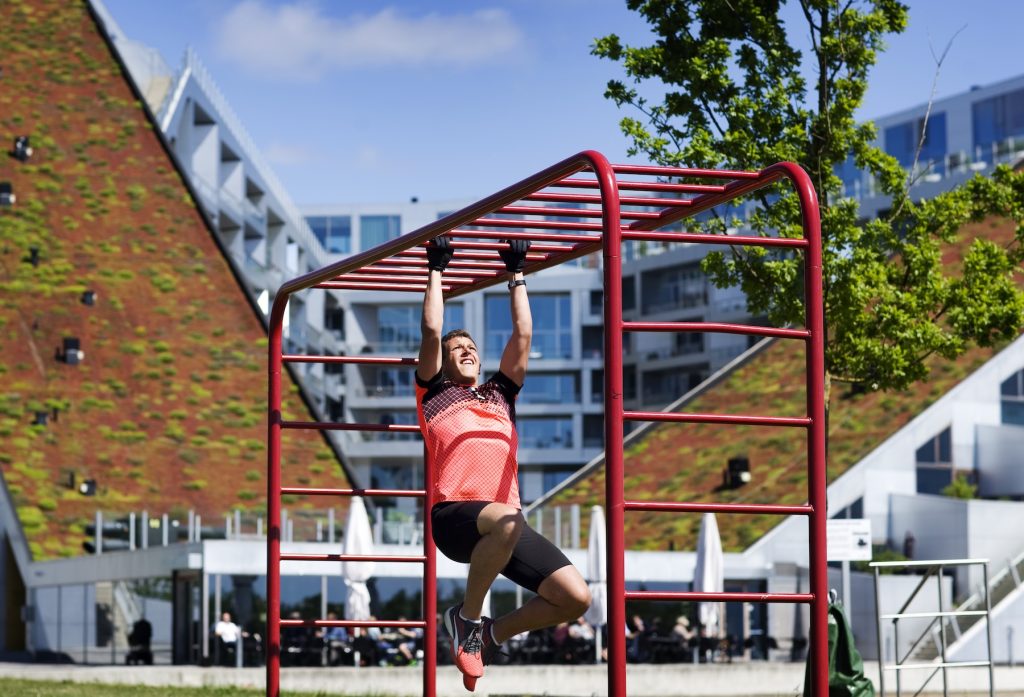
We’re excited to share that the DiaFocus mobile health system for type 2 diabetes (T2D), has now been clinically validated in routine care by clinicians at Steno Diabetes Center Copenhagen (SDCC) — and it was built end-to-end on the Copenhagen Research Platform (CARP).
In a 6-month outpatient pilot at SDCC, DiaFocus supported an integrated personalized diabetes management (iPDM) workflow with a patient app and a clinician web portal, connected via a secure backend. The study demonstrates that DiaFocus is feasible and acceptable in clinical practice and supports shared decision-making around patient-chosen focus areas.
What the study tested
- Design & setting: Single-arm, prospective 6-month cohort in routine outpatient care at SDCC. Participants attended 3 clinic visits (baseline, 3 months, 6 months) aligned with the iPDM cycle.
- Participants: 17 adults with T2D (15 completed). Median age 68 years; median HbA1c 59 mmol/mol. Inclusion required Danish language and a smartphone (iOS 13+ or Android 8.0+).
- Measures: Clinical outcomes (HbA1c, weight, DDS, PCDS, DTSQs+c) and clinical feasibility via retention, usage, interviews, and the CACHET Unified Method for Assessment of Clinical Feasibility (CUMACF).
Key findings:
- Participants rated DiaFocus highly on usability and usefulness (CUMACF: 90% very favorable on ease of use/learning; 80% agreed/strongly agreed it was useful).
- The most common patient-selected focus areas were blood glucose (59%) and exercise (53%), with sleep and mood also used.
- However, as a feasibility pilot, no statistically significant changes in clinical outcomes were observed over 6 months — underscoring the need for longer follow-up and continued product optimization.
Read the open-access paper in JMIR Diabetes (published August 25, 2025): “Assessing the Clinical Feasibility of the DiaFocus System for Integrated Personalized Management of Type 2 Diabetes: 6-Month Pilot Cohort Study.” doi: 10.2196/63894.
How DiaFocus works — powered by CARP
DiaFocus was engineered on CARP to deliver a flexible, secure, and research-grade digital health stack:
- Patient app: The DiaFocus app was built using several CARP components, including CARP Mobile Sensing and the Research Package. It collects (1) patient-reported measures (eg, blood glucose entries, smoking, alcohol), (2) standardized questionnaires (eg, WHO-5), and (3) passive phone sensor data (eg, steps). Questionnaires are adaptively triggered based on responses (eg, adding sleep, anxiety, depression when relevant).
- Shared decision-making via “focus areas”: At each clinic visit, the person with diabetes and clinician agree on one or more focus areas (eg, exercise, diet, smoking), which the app then helps track between visits. Data are summarized at the next visit to guide the conversation and reset goals together.
- Clinician web portal: Aggregates app and sensor data into readable reports for the consultation, anchoring the iPDM cycle inside usual care.
- Secure backend: The CARP Web Services hosted at DTU Computerome enabling privacy-preserving data management across settings — a core tenet of CARP deployments.
Building on prior evidence
DiaFocus extends earlier work on the iPDM framework and our initial 6-week technical feasibility pilot, which found the approach useful and usable and informed refinements ahead of this clinical study.
What we learned deploying in routine care
- People value agency. The ability to pick personal focus areas made the system feel relevant and actionable between visits.
- Keep it simple & stable. Usability was rated highly, yet real-world deployment surfaced the usual app stability and functionality issues to harden next.
- Feasibility first. A 6-month single-arm design is ideal to prove fit in clinic; demonstrating clinical effectiveness will require larger and longer trials — now under consideration.
What’s next
We’re integrating the study feedback into the next DiaFocus release on CARP — with a focus on robustness, clinician workflows, and extended sensor/PRO modules — and preparing for scaled evaluations to measure clinical and cost outcomes over longer horizons.
If you’d like to collaborate or pilot DiaFocus in your clinic, get in touch with the CARP team at DTU.
Reference: Lind, N., Bækgaard, P., Bardram, J. E., Cramer-Petersen, C., Nørgaard, K., & Christensen, M. B. (2025). Assessing the Clinical Feasibility of the DiaFocus System for Integrated Personalized Management of Type 2 Diabetes: 6-Month Pilot Cohort Study. JMIR diabetes, 10(1), e63894.
Acknowledgments: The study was conducted by SDCC and DTU collaborators, and funded via EIT Health’s iPDM-GO project; see paper for full credits.